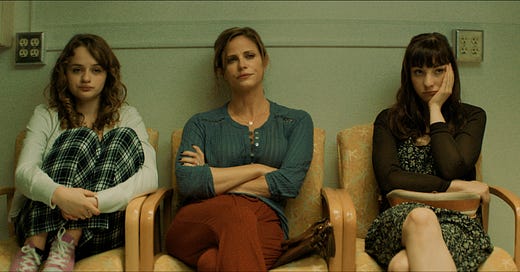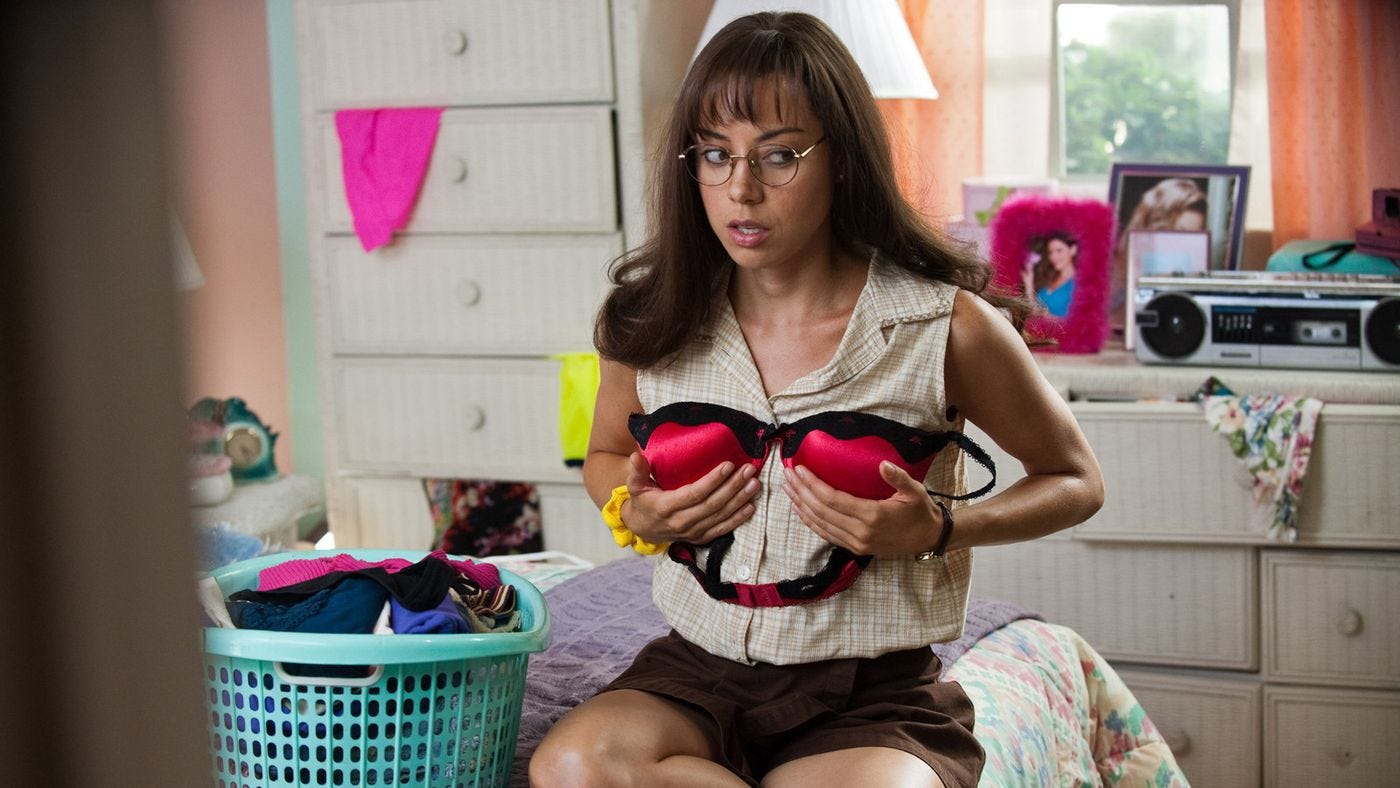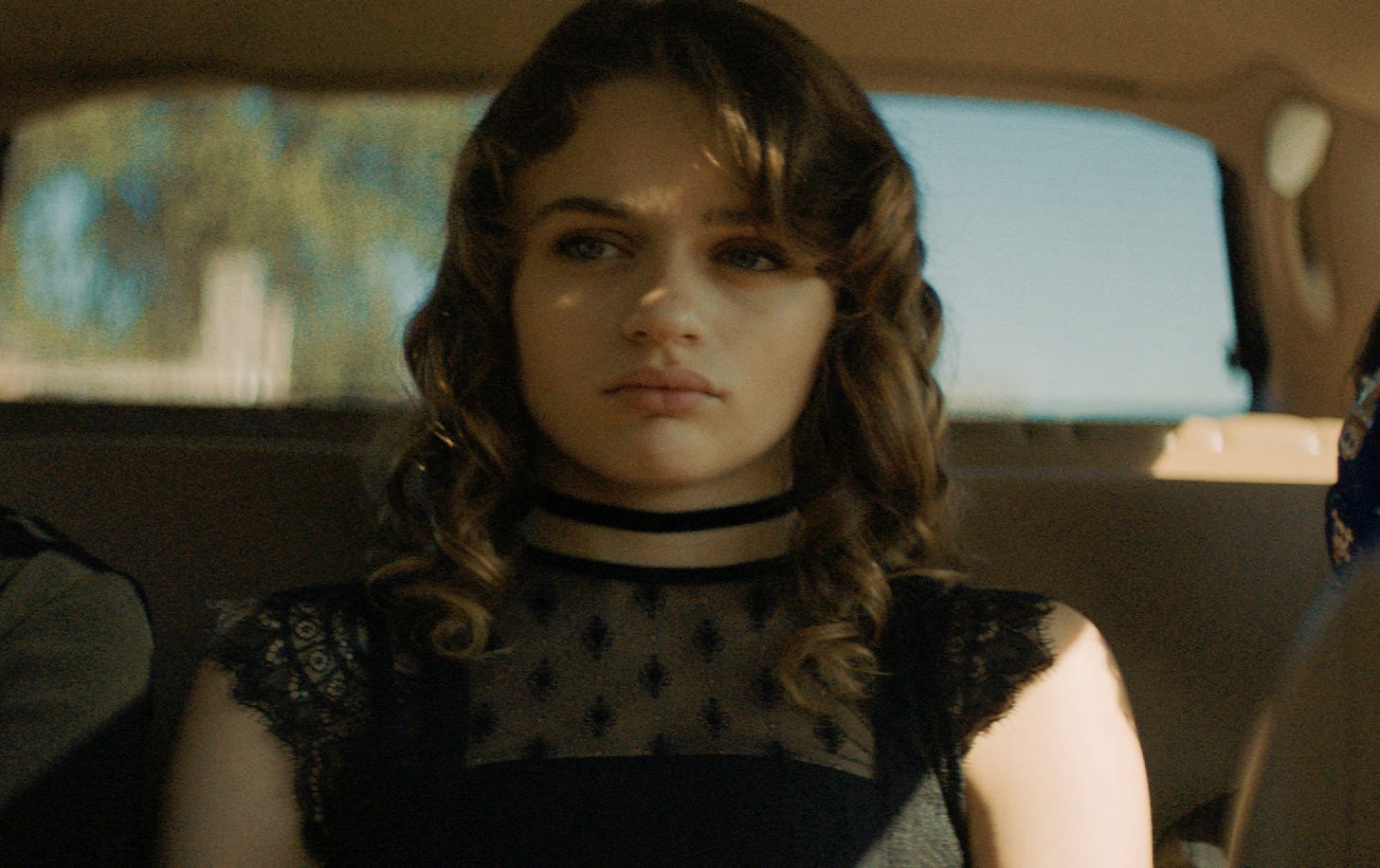How Female Filmmakers Are Redefining Virginity Tropes
Female filmmakers today are rejecting cinema’s traditionally male-centric representation of virginity for a more sex-positive, feminist one.
You are now reading a free exclusive piece from the Film Daze Digital Magazine, Issue 6: Adolescence. Consider subscribing to read the full issue. Enjoy! - The Film Daze Team
Youth is wasted on the young — particularly teenagers, who are always looking towards a future where they can drive wherever they want, dictate their rules, spend time with friends away from their parents, and have adult sex lives. One of the things that makes adolescence such a difficult period in one’s life, besides this yearning for grown-up freedom, is having to deal with puberty: the rapid changes in the body and the burgeoning feelings of sexual attraction. There’s an enormous pressure to experience the secret sexual world of men and women: losing one’s virginity is considered to be the death of adolescence, an act that transforms you from an innocent child into a knowing, mature adult.
Virginity is a gendered and heteronormative construct. For men, virginity is stigmatized — something shameful to be gotten rid of as soon as possible because it's seen as a weakness and a demasculinizing state of being. The majority of 1980s sex comedies, including Revenge of the Nerds, Losin’ It, and Porky’s, focus on boys’ feverish quests to abscond their humiliating sexual status. Oppositely, girls and women are seen as empty vessels, mere receptacles for young men to use to shed their stigma. Because of a confounding double standard, women are expected to preserve their virginity, which is seemingly tied to their self-worth and honor, becoming the greatest gift she could give her husband and no one else. If women do not save themselves for marriage or they willingly pursue sexual gratification, they are viewed as spoiled and dirty. For female characters, losing the 'precious gift' of virginity is often a painful experience met with the punishment of pregnancy or disgrace.
The release of American Pie in 1999 put a more progressive twist on the teenage sex comedy. The central plot — a group of boys make a pact to lose their virginity by prom — is familiar, but what sets American Pie apart is its focus on women seeking sexual pleasure. The girls are just as anxious to have sex (and achieve orgasm) as the boys are. And concerned with more than just losing their virginity, the boys want to learn how to satisfy their dates, leading them to consult a sacred Sex Bible that gives tips on how to adeptly perform cunnilingus. Although American Pie made innovative strides for the sub-genre, most films of its kind in the early 2000s still adhered to a patriarchal depiction of virginity loss.
It was not until recently that coming-of-age films moved away from a male-centric, traditional vision of virginity towards a sex-positive, feminist one. This progressive uplift led to films framing the loss of virginity as a mutual decision and a step in the process of getting older instead of a disempowering thing that is done to a woman by a man. The creatives behind the scenes pushing for these changes are often women; female writers and directors are stepping up to transform cinema’s frequently unhealthy portrayal of teenage sexuality.
In Maggie Carey’s The To Do List, Aubrey Plaza is Brandy Klark, a geeky, straight-laced overachiever who has done everything “right” in high school: she got exceptional grades, was chosen as the class valedictorian, and got accepted to a first-rate university. The only thing she hasn’t done is sex. With systematic aplomb, she sets about making a list of all the sexual milestones she wants to achieve over the summer: masturbating, giving and receiving oral sex, losing her virginity, and most importantly, having an orgasm. Brandy’s matter-of-fact approach to finding pleasure and gaining a wide array of sexual experiences rather than just strictly penis-in-vagina intercourse is a refreshing prospect in a teen movie. Brandy eventually loses her virginity to Rusty (Scott Porter), a self-centered musician. The encounter is brief, ending with Rusty finishing and foolishly asking Brandy if she had an orgasm, too. Her incredulous reaction, “No! It was like, less than a minute,” is indicative of the fact women should be pursuing orgasms and that their companions should be equipped to provide them with one. The To Do List deescalates the importance of virginity through Brandy’s understanding that sex is about so much more than penetration.
Rebecca Gleason's Summer ‘03 is another moving portrait of an outspoken — and sometimes crass — young woman learning to own her sexuality, respect others, and accept herself flaws and all. After her grandmother leaves her with the blunt deathbed advice “learn how to give a good blow job,” Jamie (Joey King) starts falling for Luke (Jack Kilmer), a boy who makes her want to “break all the rules,” particularly because he’s training to become a priest. Most teen sex comedies only show male characters’ sexual fantasies, but Gleason openly depicts Jamie’s masturbatory fantasies about Luke (amusingly clad in Harry Potter robes). When she eventually does have intimate contact with him, it's framed as an empowering moment, one that seems to get her off more than him — something rarely seen in teen flicks.
After the loss of her virginity, Jamie's parents don't lecture her about having sex, their issue have is that she was out late at night, which encourages a positive and pragmatic understanding between parents and their children about the probability of sex. Gleason is careful not to paint Jamie’s virginity loss as a regret, but as a progression towards her self-actualization. Through the hard lessons of the summer, she enters the next year of high school with a kinder disposition and a newfound knowledge of her body, mind, and spirit.
Allison Powell's Banging Lanie is similar to The To Do List, also centering on a conservative straight-A student, but Powell brings more of an authentic pathos to the plot. Rather than being oblivious to sex like Brandy, Lanie (Powell) is disgusted by her classmates’ constant need for physical affection, wondering why the senior year has made “everyone turn into rabbits.” But when she realizes having sex might make her a more well-rounded person and provide growth for college applications, she creates a list of sexual conquests to accomplish — hopefully with her crush Jordan (Damian Alonso). Powell perfectly captures the awkwardness, fear, and excitement that comes with being intimate for the first time — not just sex, but even kissing — in a way no other film like it has.
One of the most significant messages Banging Lanie conveys is that all forms of sex are messy — both physically and emotionally. Sex can be weird, disappointing, scary, or mind-blowing. For the stringent and well-ordered Lanie, this is not an easy lesson to learn: when she loses her virginity with Jordan, she is bewildered by how short-lived and inconsequential the encounter was. Powell’s poignant line, “A penis isn't so powerful that it's gonna make you into somebody you're not,” is something every teenage girl needs to hear. One of the most prevalent myths about losing your virginity, particularly for girls, is that it's going to completely transform you. And while the event is significant for some, it's just another marker in life’s journey. With that line, Banging Lanie rejects decades of cinema.
Gleason, Carey, and Powell offer a portrayal of teenage sexuality that is healthy, sensible, and refreshingly honest. Female filmmakers are changing the future of how teen sexuality is represented in film, providing young people with a more accurate outlook of what it's like to embark on a sexual journey for the first time.








